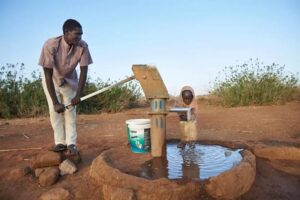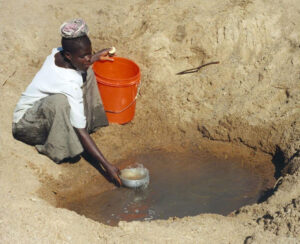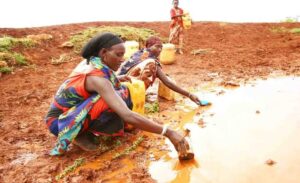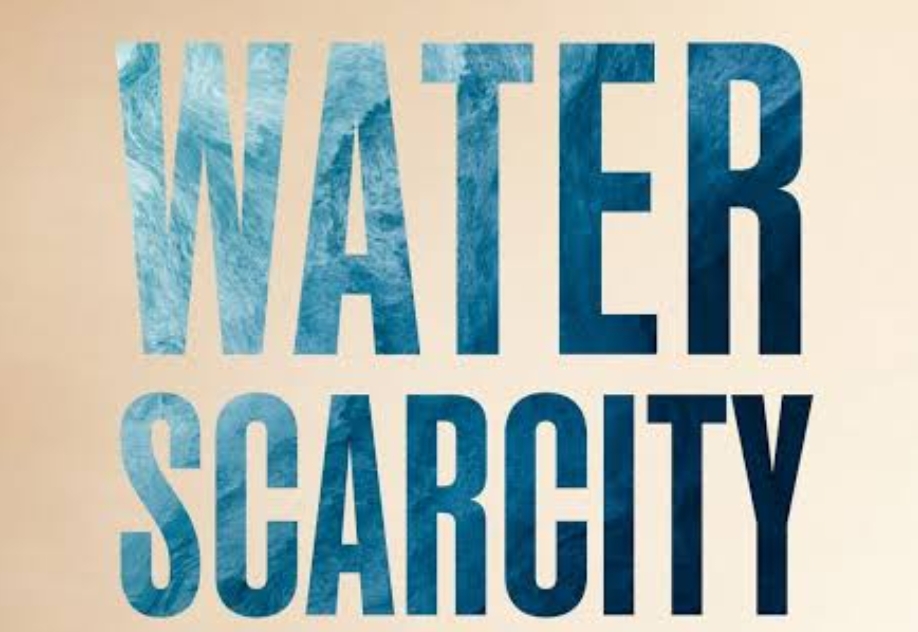This blog post explores the pressing issue of water scarcity in Africa, examining its causes, impacts, and potential solutions. It highlights the challenges faced by many African countries due to limited freshwater resources and the urgent need for sustainable water management practices.
Africa, a land of immense diversity and potential, is also grappling with a pressing challenge: water scarcity. This issue, compounded by factors such as climate change, population growth, and poor infrastructure, has far-reaching implications for the continent’s health, economy, and overall development

The Extent of the Problem
Water scarcity in Africa is a complex issue with varying degrees of severity across different regions. Many countries, particularly in the Sahel and Horn of Africa, are classified as water-scarce or water-stressed, meaning they have limited freshwater resources to meet their growing demands. This scarcity is exacerbated by uneven rainfall patterns, droughts, and the degradation of water resources.
Causes of Water Scarcity
Several factors contribute to the water scarcity crisis in Africa:
Climate Change: Rising temperatures, altered precipitation patterns, and more frequent extreme weather events are disrupting the water cycle and increasing the frequency and intensity of droughts.
Population Growth: Africa’s rapidly growing population is placing a strain on existing water resources. As more people compete for limited supplies, the demand for water is outpacing the availability.
Inefficient Water Use: Inefficient agricultural practices, industrial processes, and domestic water use contribute to water wastage. This reduces the amount of water available for essential needs.
Pollution: Pollution from industrial waste, agricultural runoff, and untreated sewage contaminates water sources, making them unsafe for consumption and other uses.
Infrastructure Challenges: Many African countries lack adequate infrastructure for water collection, storage, and distribution.
This makes it difficult to manage water resources effectively and ensure equitable access

Impacts of Water Scarcity
Water scarcity has profound impacts on various aspects of life in Africa:
Health: Access to clean water is essential for good health. Water scarcity can lead to waterborne diseases, such as diarrhea, cholera, and typhoid fever. It can also affect sanitation and hygiene practices, contributing to a range of health problems.
Agriculture: Agriculture is a vital sector in many African countries, but it is highly water-intensive. Water scarcity limits agricultural productivity, leading to food insecurity and malnutrition.
Economic Development: Water scarcity can hinder economic development by constraining industries that rely on water, such as manufacturing and tourism. It can also increase the costs of doing business and reduce investment.
Conflict and Displacement: Competition for scarce water resources can exacerbate existing conflicts and lead to displacement. In some cases, water scarcity has been a contributing factor to violence and instability.
Solutions to Water Scarcity
Addressing water scarcity in Africa requires a multifaceted approach that involves:
Sustainable Water Management: Implementing sustainable water management practices, such as rainwater harvesting, groundwater recharge, and efficient irrigation systems, can help conserve water and improve its availability.
Climate Change Mitigation: Reducing greenhouse gas emissions to mitigate climate change is crucial for addressing the root causes of water scarcity.
Investment in Infrastructure: Investing in water infrastructure, including dams, pipelines, and treatment plants, can improve access to clean water and enhance water security.
Community-Based Water Management: Empowering communities to participate in water management decisions can ensure that local needs are met and promote equitable access to water resources.
Education and Awareness: Raising awareness about the importance of water conservation and sustainable water use can encourage individuals and communities to adopt more responsible practices.
The challenge of water scarcity in Africa is significant, but it is not insurmountable. By implementing comprehensive solutions that address the underlying causes and promote sustainable water management, it is possible to ensure a more water-secure future for the continent.

Conclusion
The challenge of water scarcity in Africa is a complex and pressing issue with far-reaching implications for the continent’s health, economy, and overall development. While the problem is significant, it is not insurmountable. By implementing comprehensive solutions that address the underlying causes and promote sustainable water management, it is possible to ensure a more water-secure future for Africa.
Through a combination of sustainable water management practices, climate change mitigation, investment in infrastructure, community-based approaches, and education and awareness, Africa can overcome the challenges of water scarcity and build a more resilient and prosperous future for its people.
Disclaimer:
The information provided in this blog post is intended for general knowledge and informational purposes only. It does not constitute professional advice or recommendations. While every effort has been made to ensure the accuracy of the content, readers should consult with appropriate experts for specific advice related to water scarcity, sustainable water management, or any other relevant topic. The author does not assume any responsibility for any errors, omissions, or consequences arising from the use of the information contained herein.




